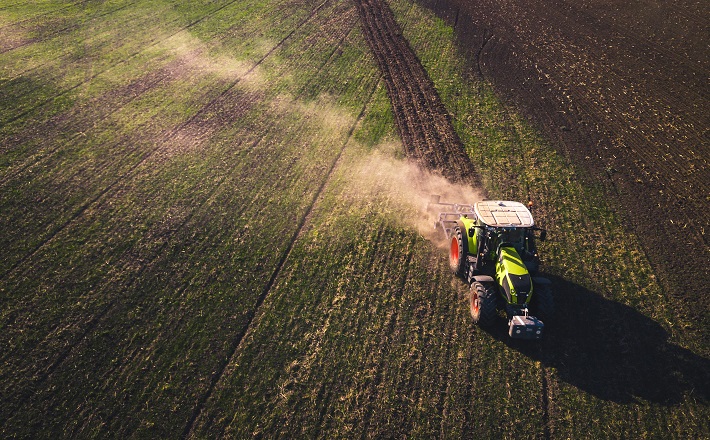Though my primary vocation is teaching and learning about the biblical text, as you may remember from our earlier correspondence, I also have the responsibility for a small farm, and so I have great need to reflect on our texts from Genesis for this week. There’s a lot to chew on in the reading from Genesis, and I believe that sometimes we have a tendency to jump ahead in the text, to dwell on the mystery of the two trees and the craftiness of the serpent. For me, though, Genesis 2:15 grabs my attention: “The LORD God took the man and put him in the garden of Eden to till it and keep it.”
Even though snow still blankets the ground here in Minnesota, I have tilling and keeping on my mind. Over the last few weeks, several hundred pounds of seeds have arrived at my door. Oat seeds and orchard grass, clovers and big blue stem, all intended as cover crops for the purpose of keeping the ground covered and building soil fertility. I’m busy researching cultipackers and disk harrows and all sorts of equipment that I couldn’t even identify on sight, let alone know how to use. Tilling and keeping the soil is keeping me up at night.
All of my wonderings about agricultural implements and processes led me to wonder: what did the Hebrew author have in mind when he wrote about “tilling”? This first farmer, of course, did not own a tractor, so what would tilling have looked like for him? When I look into the Hebrew text in my class and devotional preparation, sometimes the insights that I glean give nuance that I didn’t appreciate at first. Other times, the English translation pretty much gets the point across. And then, dear working preacher, there are the times when looking into the Hebrew text blows my mind.
Ancient agricultural is a specialty of mine; I wrote my dissertation on it. Within that broad field, I spent the most time learning about ancient grain production, which has a whole host of vocabulary for the different tasks that make up the farming process. And so, when I set out to look into Genesis 2:15 and the word translated “till,” I was expecting something having to do with plowing, such as the word translated “harrow” in Job 39:10 or the word for “plowing” as in Isaiah 28:24. Instead what I discovered was that the word translated “till” is actually very common. It’s a Hebrew word you may be familiar with, the word avad and its dominant meaning is “to work” or “to serve.” This word avad occurs hundreds of times in the Hebrew Bible, often with reference to serving God or other people. Curiously, this is the only place that it’s ever translated “till” in the NRSV. Other translations prefer to translate avad in Genesis 2:15 as “to work” or “to cultivate.”
You may be asking now, dear friends, what blew my mind about so basic a word? The answer is that none of the popular Bible versions that I consulted chose the most obvious translation choice: “The LORD God took the man and put him in the garden of Eden to SERVE it and keep it.” Over and over again throughout Genesis, the word means “to serve,” so why not here? So much ink has been spilled about the problems that the biblical concept of “dominion” have for stewardship of the environment and, yet, the most obvious refutation of those misunderstandings has been lying in plain sight. This discovery has helped to reframe the tasks that await me this spring. The purpose of all my seeds and implements is not to “till” the ground or to “work” the ground, but to “serve” the ground. By serving the ground, I hope to serve the earth and to serve those around me who rely on clean water and good food to sustain them. This discovery has helped me to remember that the problems that I face are quite often the crosses by which God helps me to serve my neighbor in my vocations. The Word continues to speak into our lives, if only we will hear it.
Dear Working Preacher, if this dog steeped in biblical agriculture can learn new tricks, so can you! Keep at your preparation, keep asking questions, keep looking up words. You may just learn new and exciting things.
Kristofer

